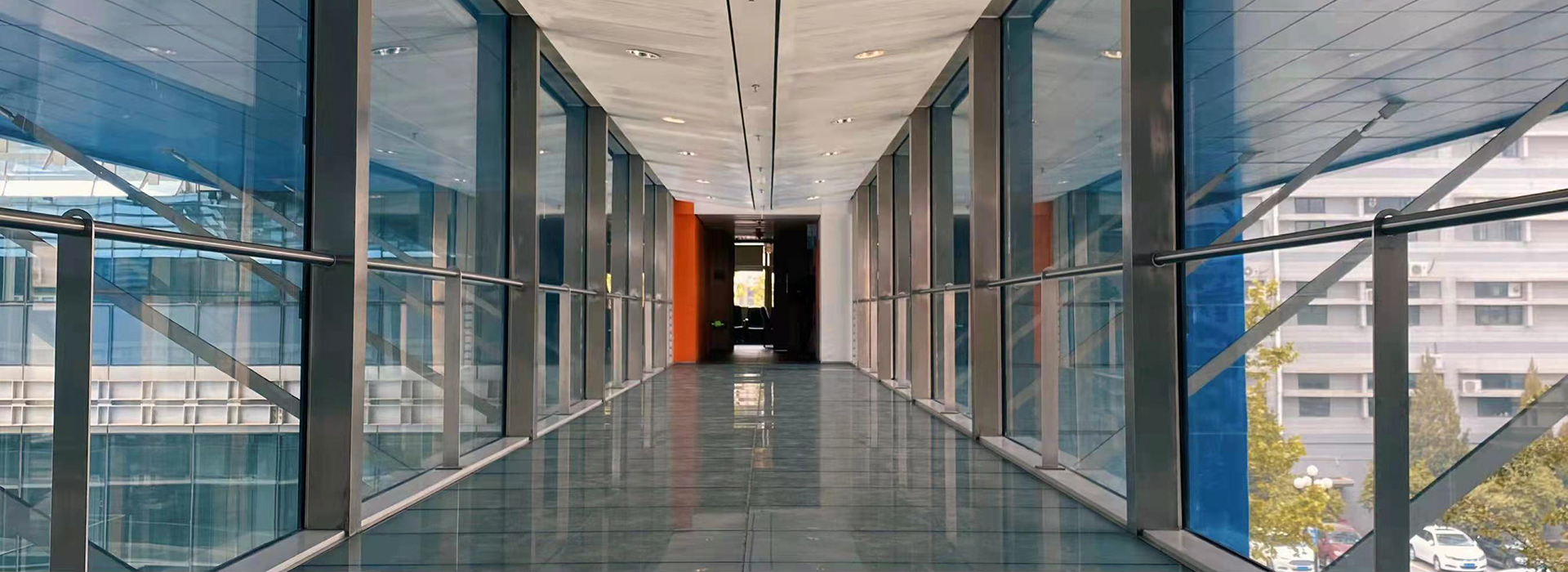The 16th National Environmental Conference for Doctoral Students (NECDS) and the 686th Tsinghua University Doctoral Academic Forum took place from October 29 to November 1, 2022. The event was held both online and offline, providing participants with the opportunity to engage in academic discussions and presentations.
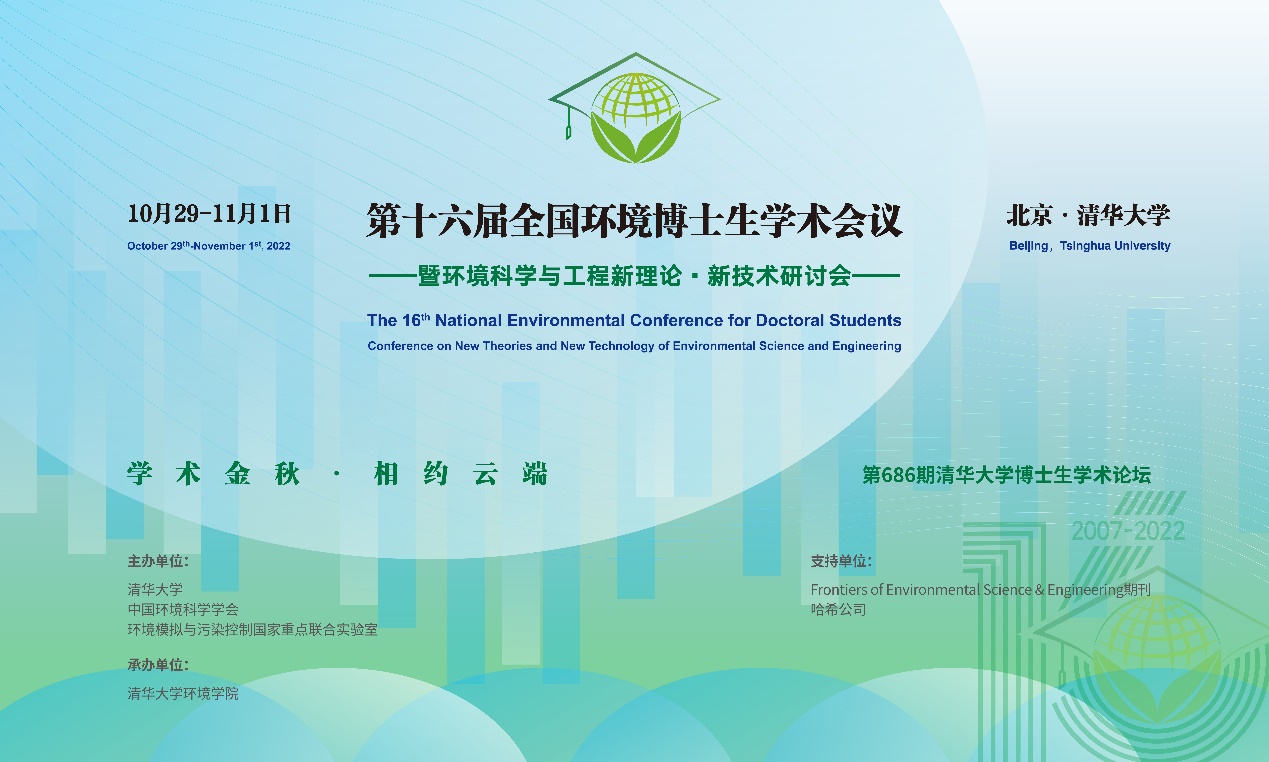
Conference Poster
The conference was a collaborative effort between Tsinghua University, the Chinese Society for Environmental Sciences, and the State Key Joint Laboratory of Environment Simulation and Pollution Control. It was organized by the School of Environment at Tsinghua University, with support from the journal Frontiers of Environmental Science & Engineering and Hach Company. Themed "New Theories and New Technology of Environmental Science and Engineering," the conference spanned four days and featured a range of engaging events. These included an opening ceremony, keynote presentations, 7 sub-venues, a Forum of Development and Innovation for Environmental Engineering Technology, three workshops, and a closing ceremony. The conference attracted a total of 4,000 participants, and the opening and closing ceremonies have garnered 11,000 views so far.
Opening Ceremony
The grand inauguration of the event took place on October 29, 2022. Jiang Peixue, esteemed Vice President of Tsinghua University and a distinguished member of the Chinese Academy of Sciences, graced the occasion with a warm and inspiring welcoming speech. The gathering was further enriched by the presence of notable individuals who delivered insightful keynote presentations, including Qu Jiuhui, a distinguished Professor at Tsinghua University and esteemed Member of the Chinese Academy of Engineering, as well as a Research Professor at the prestigious Research Center for Eco-environmental Sciences, Chinese Academy of Sciences. Another distinguished guest was Huang Jing, the Director General of the Administrative Center for China's Agenda 21. The opening ceremony was hosted by Liu Shuming, an esteemed Professor and Chairman of the School Council at the renowned School of Environment. The subsequent keynote session was led by Liu Yi, a Professor and the esteemed Dean of the School of Environment. The event drew a diverse and distinguished audience, with attendees representing various affiliations, including Tsinghua University, the Chinese Society for Environmental Sciences, the Administrative Center for China's Agenda 21, as well as notable companies such as Danaher Corporation and Hach Company.
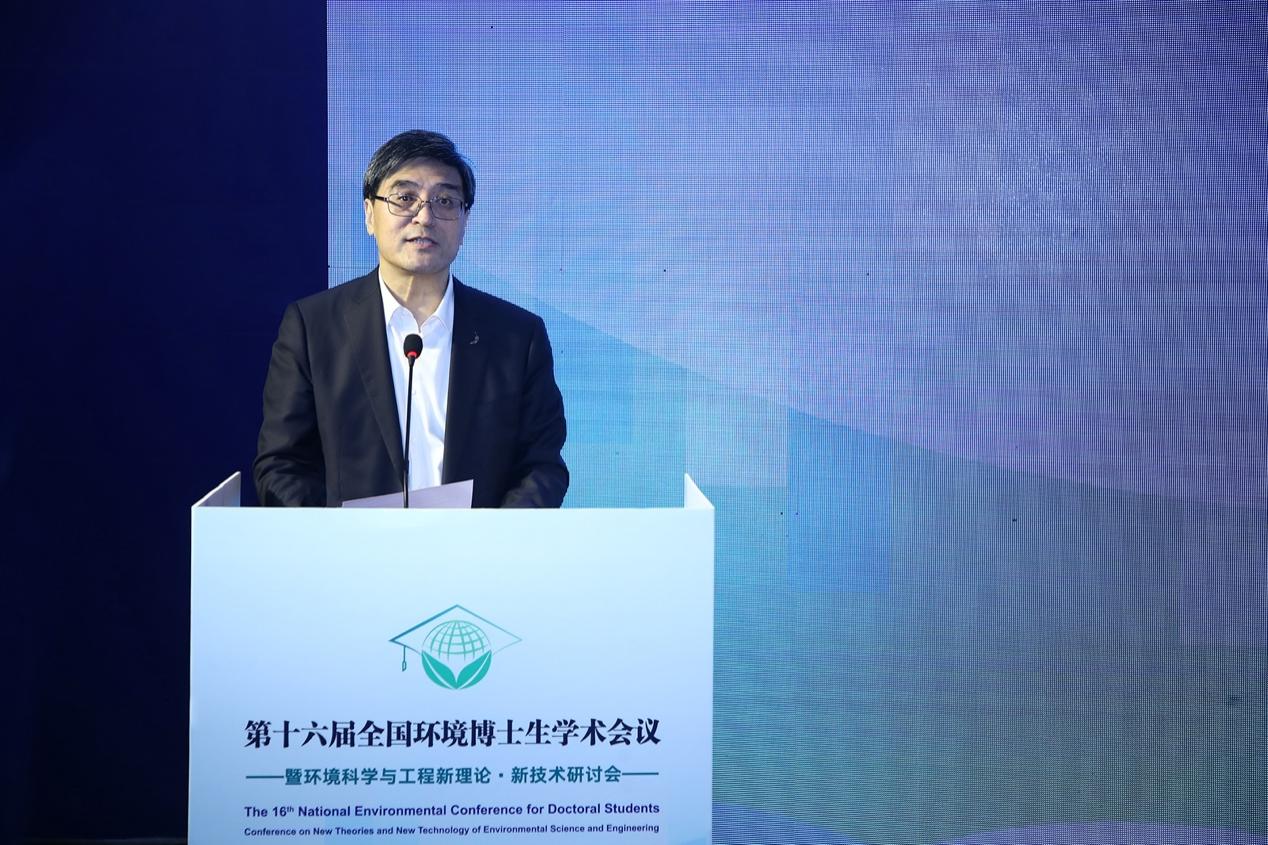
Jiang Peixue gave a welcoming speech
Jiang Peixue highlighted the explicit mention in the report of the 20th National Congress of the CPC regarding the importance of preserving natural resources and maintaining harmony between humanity and nature during the planning of our development. He emphasized the need to address the root causes of environmental problems, propose coordinated solutions, and enhance interdisciplinary integration to achieve effective solutions. The National Environmental Conference for Doctoral Students serves as an international, high-level platform for academic exchanges in pursuit of these objectives. Notably, Jiang commended the establishment of the "Forum of Development and Innovation for Environmental Engineering Technology" specifically designed for doctoral students in the field of environmental engineering. This forum has successfully fostered collaboration between various environmental disciplines and facilitated cooperation among industry, universities, and research institutes. Jiang encouraged students to actively participate in knowledge-sharing and collaborative efforts toward achieving both the carbon peaking and carbon neutrality goals to attain a more beautiful China..
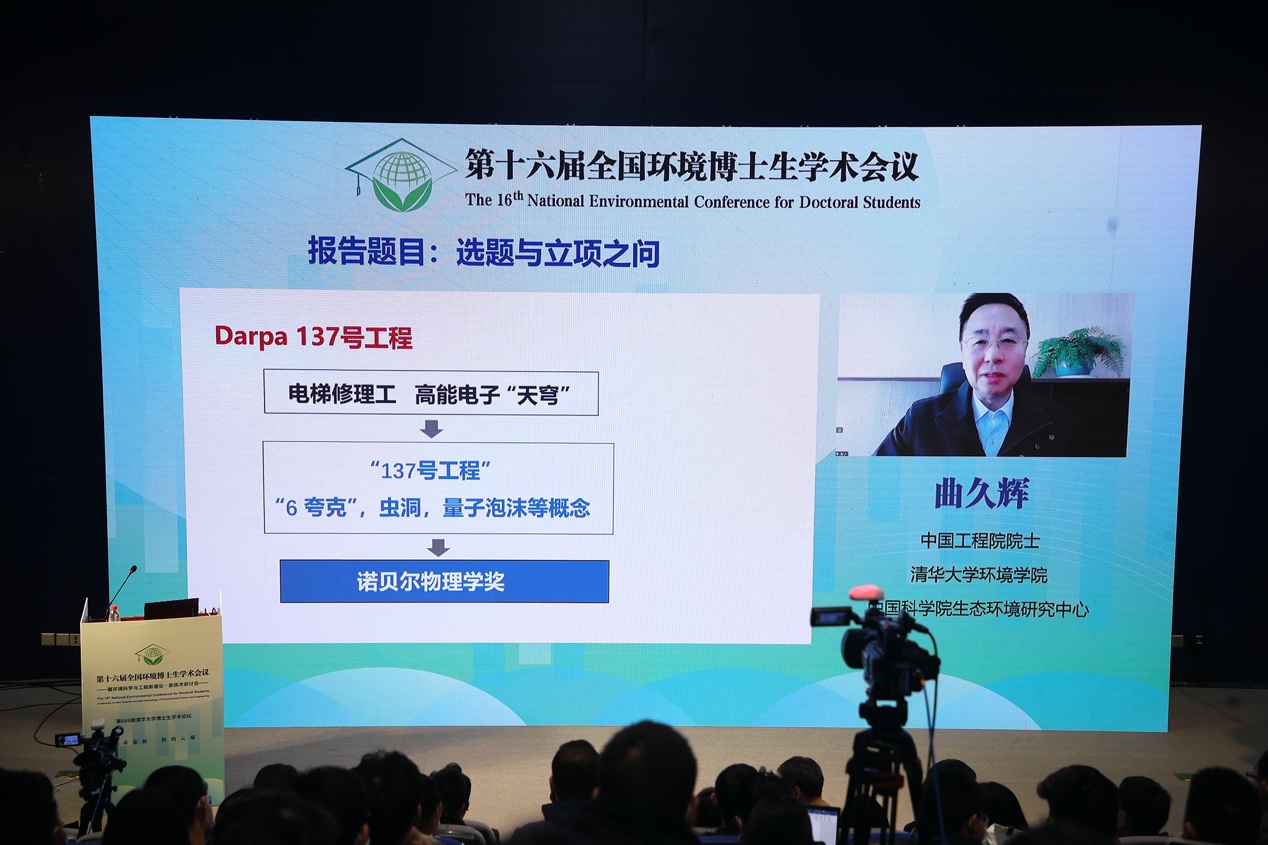
Qu Jiuhui gave a keynote presentation.
Qu Jiuhui delivered a keynote presentation titled "Key Points of Research and Project Topic Selection," where he highlighted five essential considerations for scholars when developing research or project topics. Firstly, Qu emphasized the importance of selecting a topic that aligns with both ideas and practical needs while maintaining originality. Secondly, he urged scholars to conduct a thorough and accurate review of existing studies, taking note of their limitations and basing their work on solid evidence. Thirdly, Qu encouraged researchers to pursue innovative approaches and anticipate potential reasons for research failure. Fourthly, he emphasized the significance of understanding the interests of stakeholders and addressing their concerns regarding the research outcomes. Lastly, Qu stressed the value of recognizing the contributions made by previous research in the chosen field. Ultimately, Qu expressed his hope that young scholars would venture into uncharted territory to foster originality in their research endeavors and pave the way for academic breakthroughs.
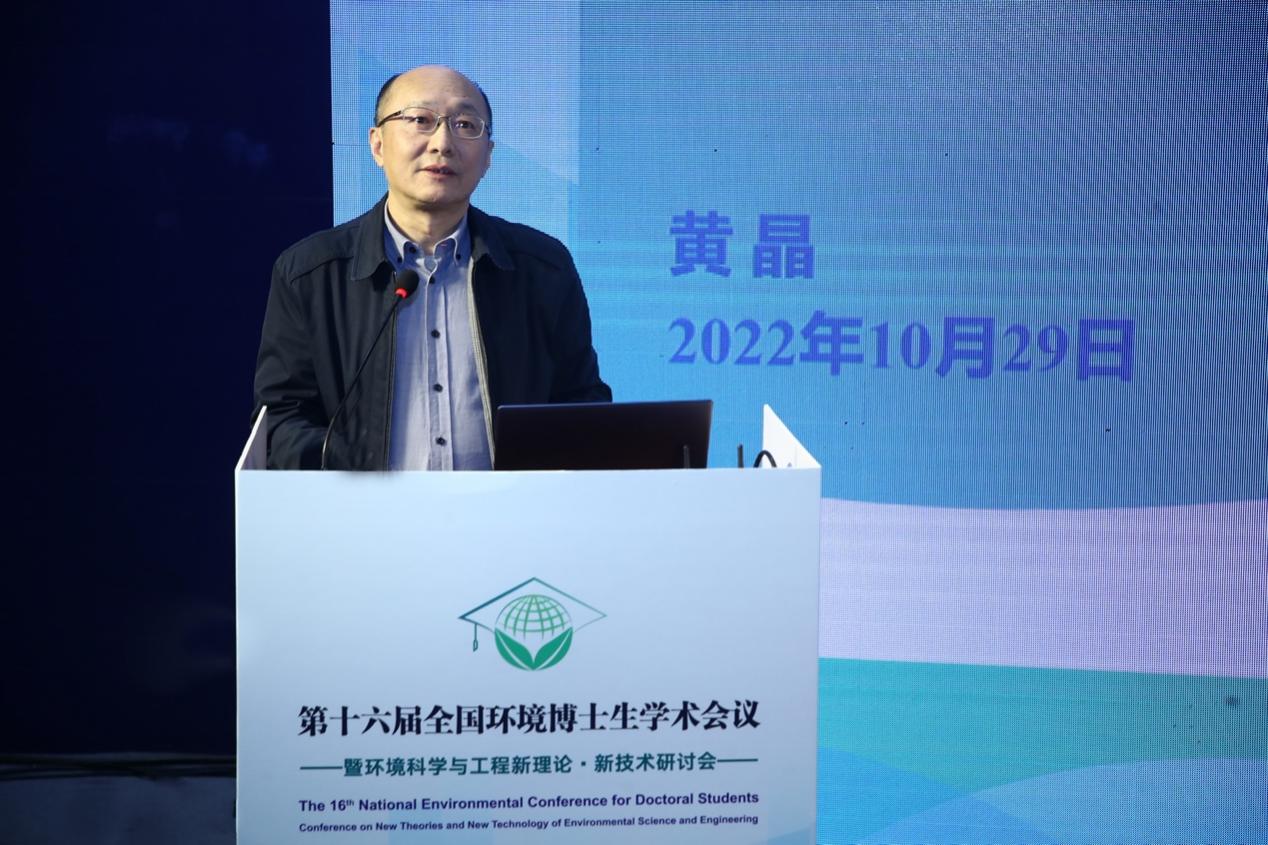
Huang Jing gave a keynote presentation
Huang Jing delivered a keynote presentation titled "Development and Prospect: China's Carbon Neutrality Technology Framework," emphasizing the importance of collective efforts and systematic analysis in constructing a comprehensive technology framework for achieving carbon neutrality in China. Huang stressed the need to consider China's unique circumstances and work collaboratively to develop this framework. He proposed a step-by-step approach, starting from low-carbon technologies and progressing towards zero-carbon and even carbon-negative technologies. This systematic approach would optimize efforts and promote greater synergy in the pursuit of carbon neutrality. Furthermore, Huang highlighted the critical role of coordination among technologies, policies, and the market to effectively achieve carbon neutrality under the carbon peaking and carbon neutrality goals. Only through concerted actions across these dimensions can the goals of carbon peaking and neutrality be realized.
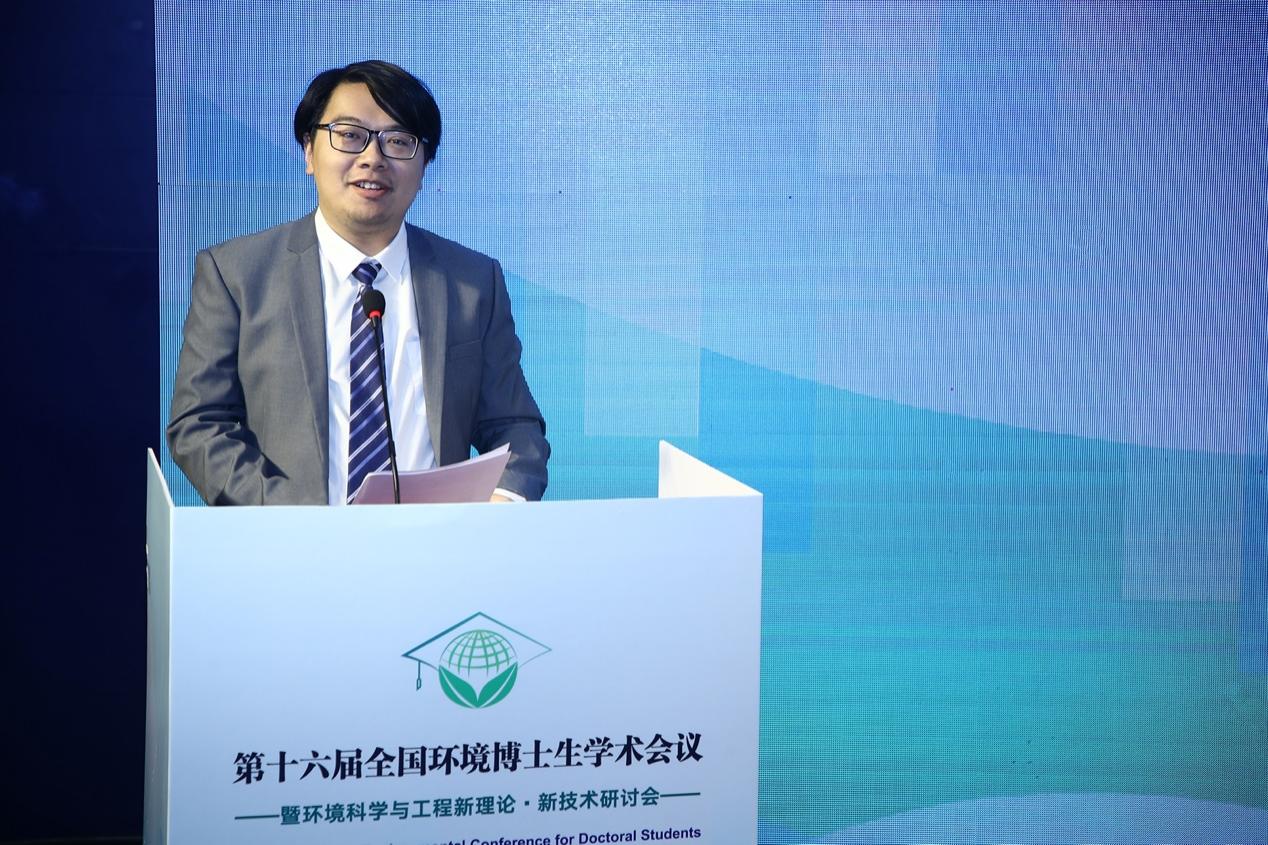
Wang Liuwei shared his thoughts about this conference
Wang Liuwei, a PhD student from the School of Environment, shared his reflections on the NECDS conference on behalf of his fellow doctoral students. He emphasized that the conference served as a valuable platform for academic exchanges and facilitated a comprehensive understanding of collaborative governance in the field of environmental studies. Moreover, Wang highlighted the conference's role in inspiring young environmental scholars to recognize their responsibility in addressing China's environmental challenges by identifying specific issues and conducting impactful research.
The opening ceremony of the conference was graced by the presence of distinguished experts and scholars, including Vice Dean Xiao Xi from the Graduate School of Tsinghua University, Director Huang Xia from the State Key Joint Laboratory of Environment Simulation and Pollution Control, and Professor of the School of Environment. Additionally, Director Liu Ping from the Science and Technology Consultancy/Evaluation/Promotion Department of the Chinese Society for Environmental Sciences, Researcher Zhang Xian from the Division of Social Service and Regional Development at the Administrative Center for China's Agenda 21, President Qin Xiaopei of Danaher China (participating online), Strategic Marketing Manager Diao Huifang from Hach Company, Professor Yue Dongbei, Associate Dean of the School of Environment at Tsinghua University, and Associate Professor Zhang Xiaoyuan, who served as the Chair of the organizing committee for the conference, were among the distinguished guests in attendance.
Sessions
The conference featured a total of seven sessions, each dedicated to a specific theme as such: “Water Pollution Control and Recycling”, Environmental Chemistry”, “Air Pollution and Control”, “Environmental Ecology and Health”, “Implementation Pathways, Mechanisms and Policies for Carbon Peaking and Carbon Neutrality”, “Environmental Economics, Management and Policy”, and “Solid Waste Pollution Control and Recycling”.
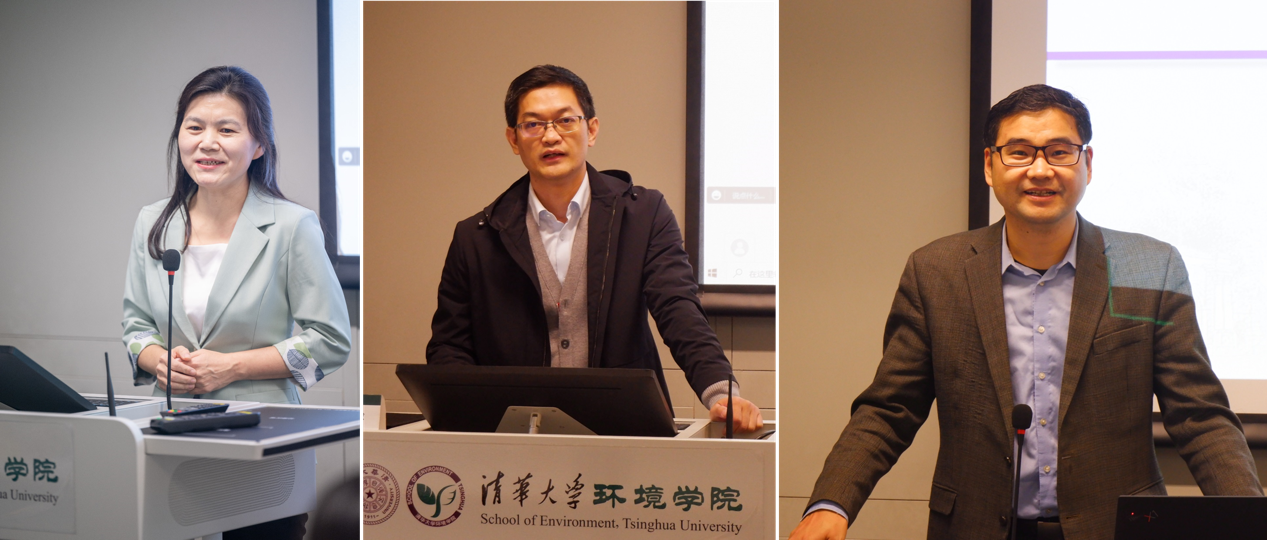
Special guests gave keynote presentations (Left to Right: Wang Shuxiao, Wen Zongguo, and Lu Xi)
A group of experts and scholars were invited to deliver presentations during the sessions. The following individuals presented their research: Pan Bingcai, a Professor from Nanjing University, discussed the "Application of Nanotechnology in Advanced Water Treatment: Challenges and Explorations."; Yang Qiang, a Professor from East China University of Science and Technology, shared insights on the "Technology and Equipment of Water Pollution Control in Offshore Oil and Gas Exploitation."; Liu Qian, a Research Fellow from the Research Center for Eco-Environmental Sciences of the Chinese Academy of Sciences, presented on "Sources Identification Using Stable Isotopes: From Environment to Organism."; Wang Shuxiao, a Professor from Tsinghua University SOE, talked about the "Key Technology and Application of Regional Air Quality Control."; Huo Shouliang, a Research Fellow from the Chinese Research Academy of Environmental Sciences, discussed the "Study on the Evolution and Driving Forces of Phytoplankton Community in Lakes and Reservoirs."; Wen Zongguo, a Professor from Tsinghua University SOE, presented on the "Optimization and Management of Industrial Pathways to Reduce Pollution and Carbon Emissions."; Lu Xi, a Professor from Tsinghua University SOE, focused on "Towards Carbon Neutrality: Renewable Energy Efficient Use and Environmental Risks in the Industrial Chain."; Hu Yanjun, a Professor from Zhejiang University of Technology, explored the "Formation and Control of EPFRs and PAHs in the Thermal Conversion of Organic Solid Waste."
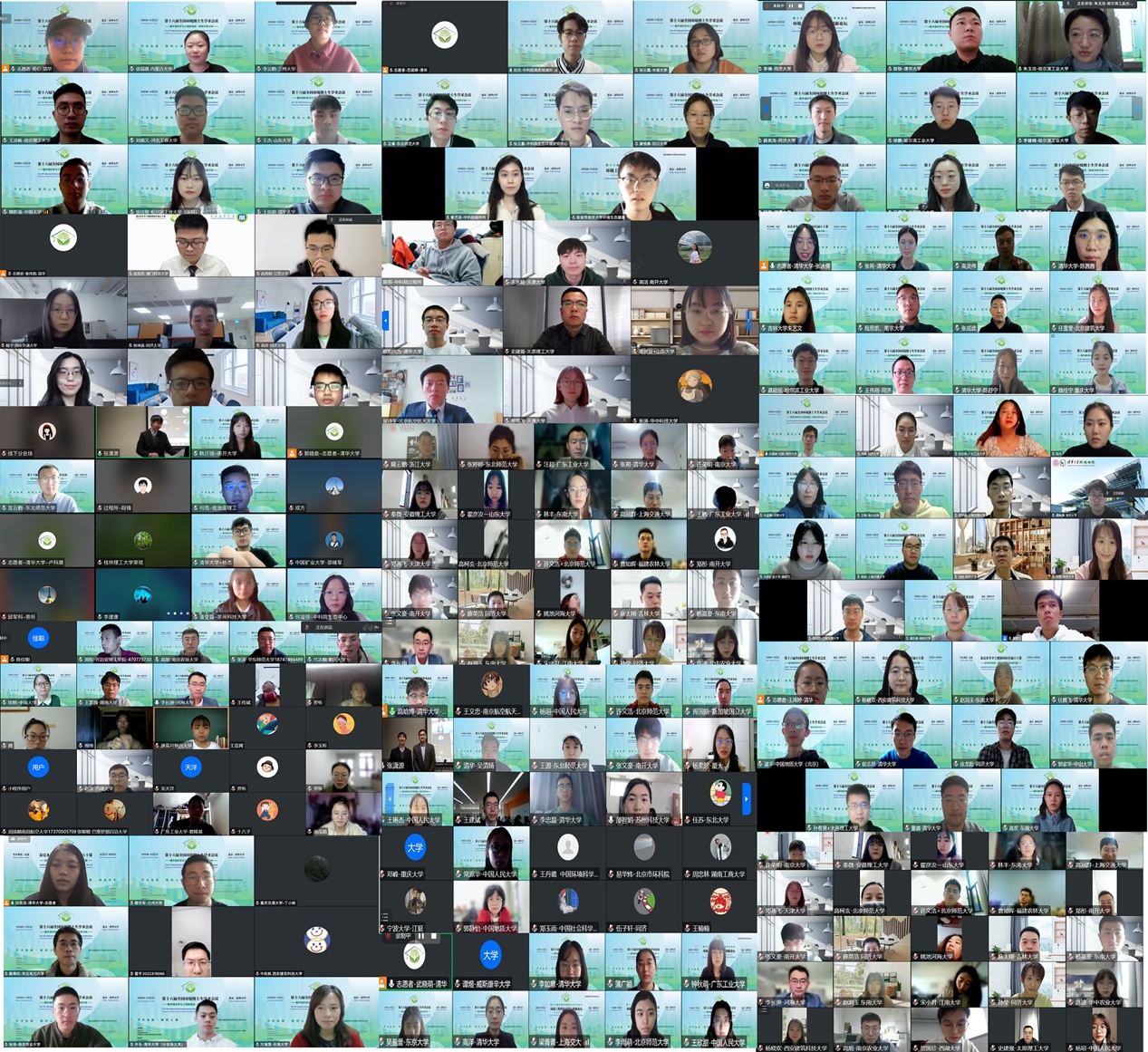
Group Photo of Online Session Participants
The event featured active participation from a total of 245 doctoral students, who presented their research progress through oral presentations. Additionally, 164 students showcased their academic findings through poster presentations. This platform facilitated fruitful exchanges of academic views and fostered in-depth discussions on a wide range of topics among the participants.
Forum of Development and Innovation for Environmental Engineering Technology
The Forum of Development and Innovation for Environmental Engineering Technology took place on October 29, 2022, with an opening speech delivered by Yue Dongbei. In his address, Yue emphasized the forum's emphasis on technology innovation and the leadership role of environmental engineering. He highlighted that the event served as a valuable platform for doctoral students in the field to engage in discussions on cutting-edge topics, challenges within engineering technology, and the practical application of industrial techniques. Yue encouraged all participants to actively participate in open and in-depth discussions concerning practical engineering issues and relevant theories, with the aim of enhancing their academic competence.
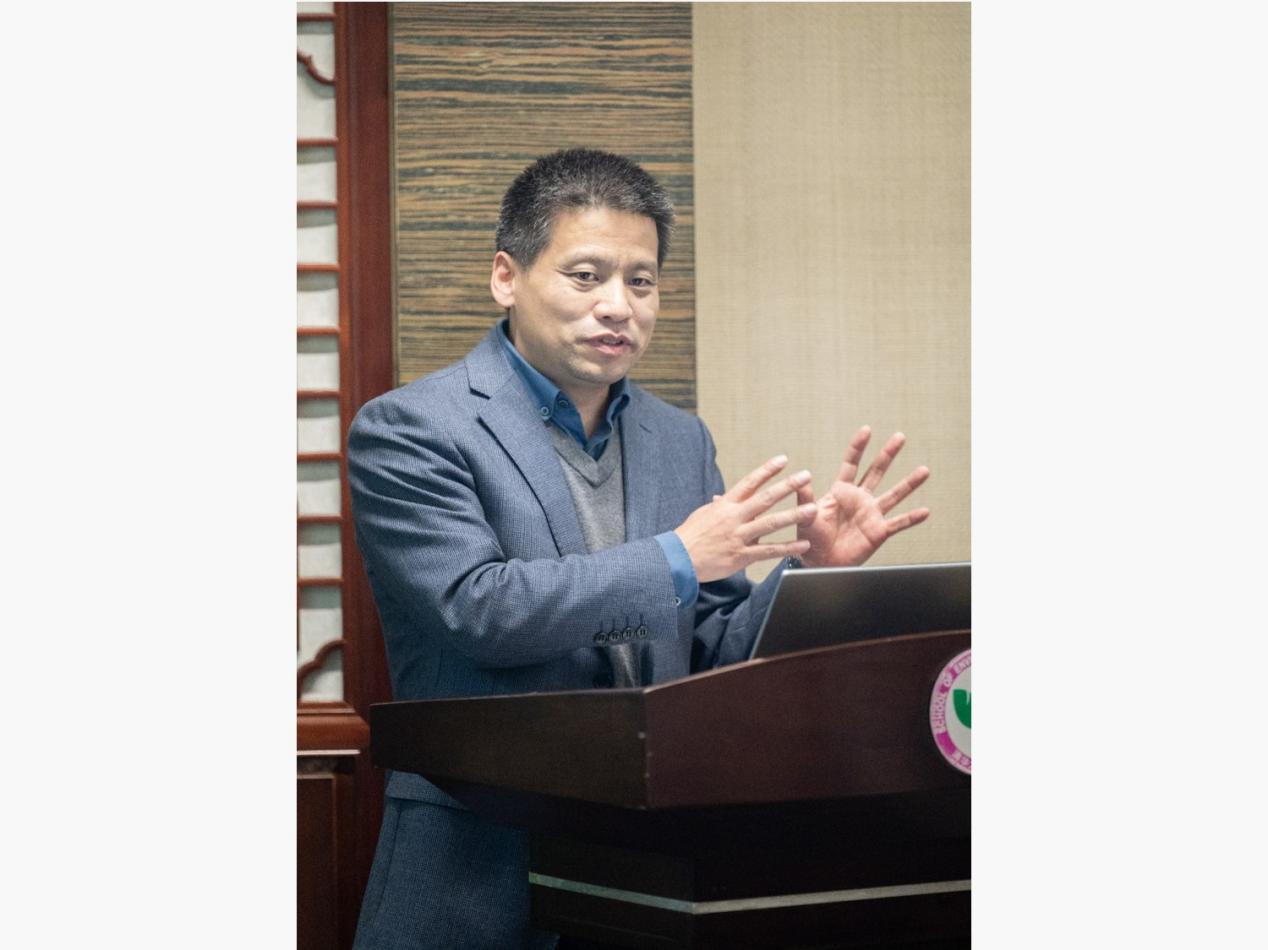
Yue Dongbei made a speech for the forum
Qin Xiaopei, a distinguished guest, was invited to deliver a keynote presentation during the forum. During his speech, he emphasized the critical importance of developing intelligent monitoring and enhancing the capacity of environmental monitoring systems. He highlighted that such advancements would greatly contribute to improving environmental governance and management practices. Furthermore, Qin emphasized the significance of environmental enterprises achieving complementary and coordinated development, with a focus on creating value for society as a whole.
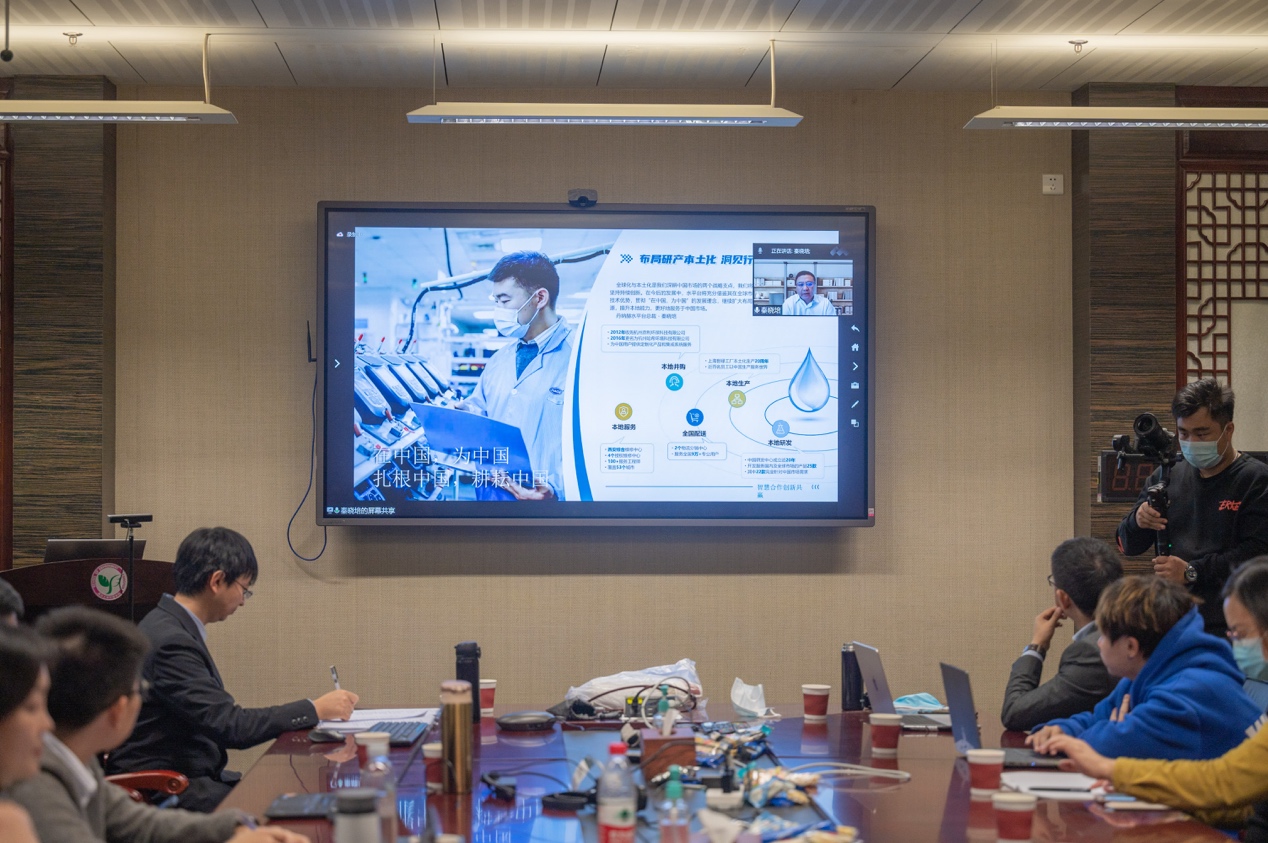
Qin Xiaopei gave a keynote presentation in the forum.
The Tsinghua Doctoral Program for Innovation Leadership Engineering witnessed a remarkable participation of 24 doctoral students who shared their research progress in various areas. The topics covered included "Frontier Environmental Technology and Its Application," "Environmental Technology Innovation and Integration," "Innovation and Development of Environmental Industry Model," and "Green and Low-carbon Technology Application." The students also engaged in discussions regarding the transition of industries towards a low-carbon future and the upgrading of technology. The active involvement of the participants contributed significantly to the success of the forum, demonstrating its effectiveness as a platform for knowledge exchange and academic growth.
Workshops
The conference featured three workshops that were initiated, convened, and organized by doctoral students, each focusing on leading topics in environmental technology, engineering, and management. The workshops covered air pollution and health risks associated with traffic emissions, contamination processes and integrated remediation of multiple pollutants in the soil environment, as well as models and realities of carbon-neutral pathways. Esteemed speakers were invited to present their research, including Liu Huan, a Professor from the School of Environment; Nanthi Bolan, a Professor from the University of Western Australia; and Duan Hongbo, a Professor from the University of Chinese Academy of Sciences. They delivered presentations on "Multi-scale atmospheric impact of traffic emissions," "The ground's generosity takes in our compost and grows beauty: Compost and biochar application promoting soil health and productivity," and "Integrated assessment models of climate change: Frontiers and challenges," respectively. Moreover, the conference facilitated the exchange of ideas and discussions with the participation of 37 foreign scholars and doctoral students, while around 600 attendees joined the event online.

Workshop 1: Air pollution and health risks due to traffic emissions
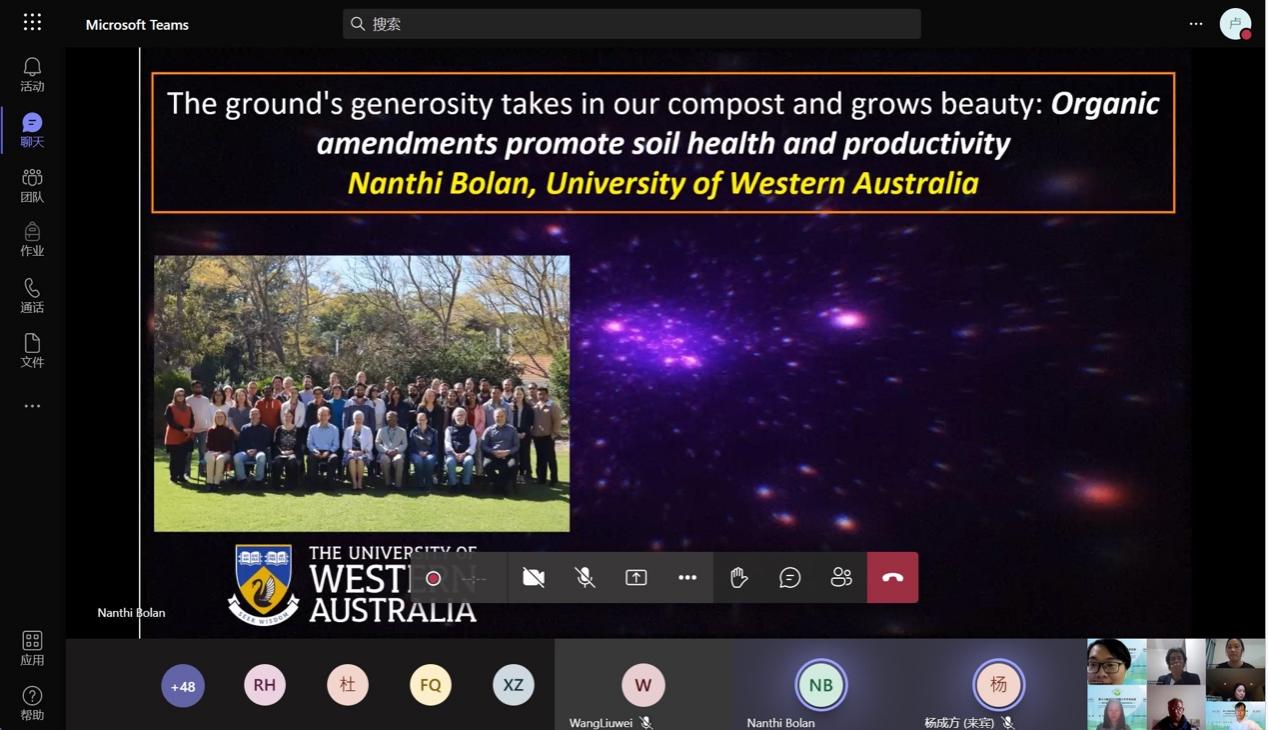
Workshop 2: Contamination processes and integrated remediation of multiple pollutants in the soil environment
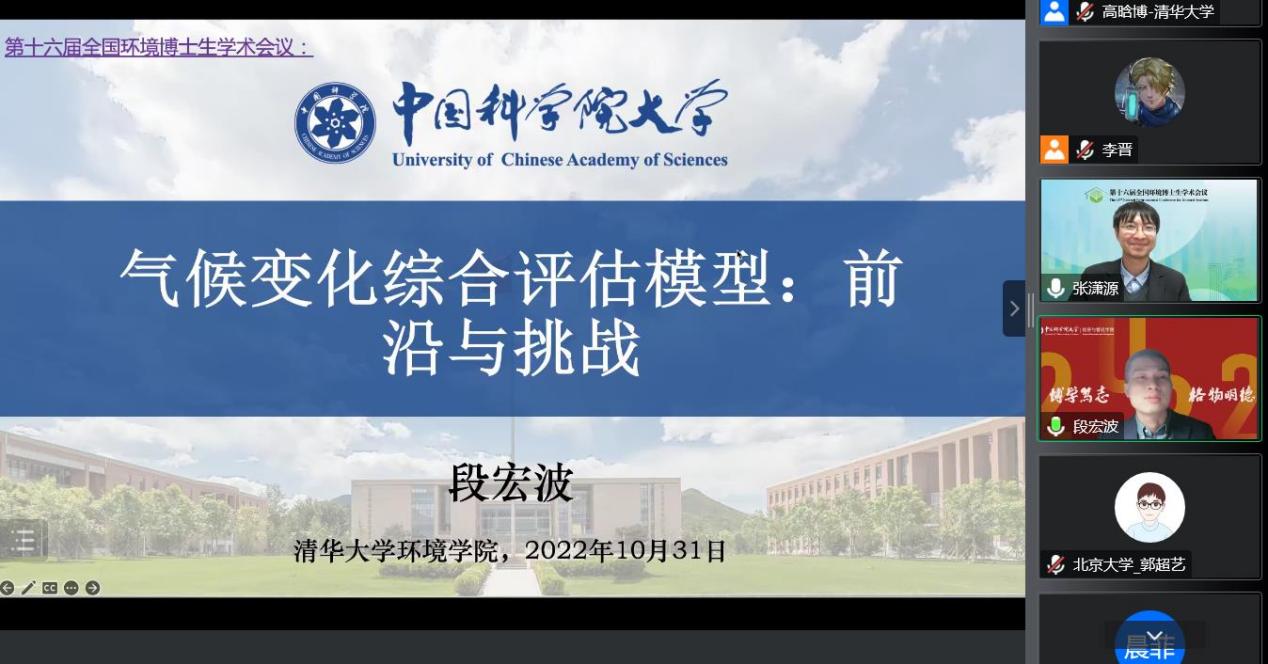
Workshop 3: Models and reality of carbon-neutral pathways
Closing Ceremony
The closing ceremony of the conference took place on November 1, 2022, with a closing speech delivered by Zhang Xiaoyuan. In his address, Zhang acknowledged and commended the 16th conference for carrying forward the esteemed tradition of its preceding 15 conferences. He specifically praised the Forum of Development and Innovation for Environmental Engineering Technology and the Workshops organized by the students. These platforms provided a self-organized space for profound discussions and academic exchanges among doctoral students, truly showcasing their strength and intellectual capacity. Huang Junlong, Vice-chair of the 16th NECDS Organizing Committee and a PhD student from Tsinghua University SOE, served as the host for the closing ceremony. Chen Jiacong, Vice-chair of the 16th NECDS Organizing Committee and a PhD student from Tsinghua University SOE, delivered a conclusive summary of the conference. The speakers who gave presentations during the event included Xu Jiamin, a PhD student from Harbin Institute of Technology, Shenzhen; Wang Liuwei, a PhD student from Tsinghua University; and Zhang Yidan, a PhD student from Peking University. Following intense discussions and fruitful exchanges of the conference, the 16th NECDS finally came to a close.
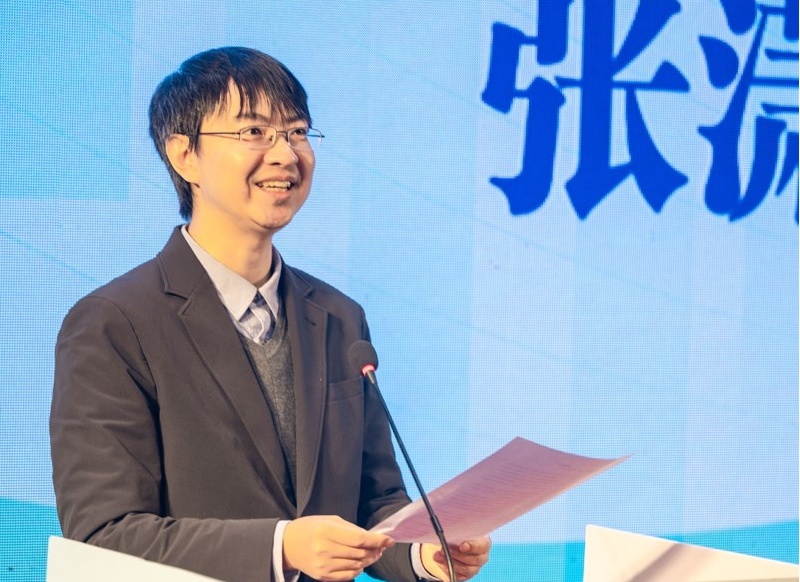
Zhang Xiaoyuan delivered a closing speech
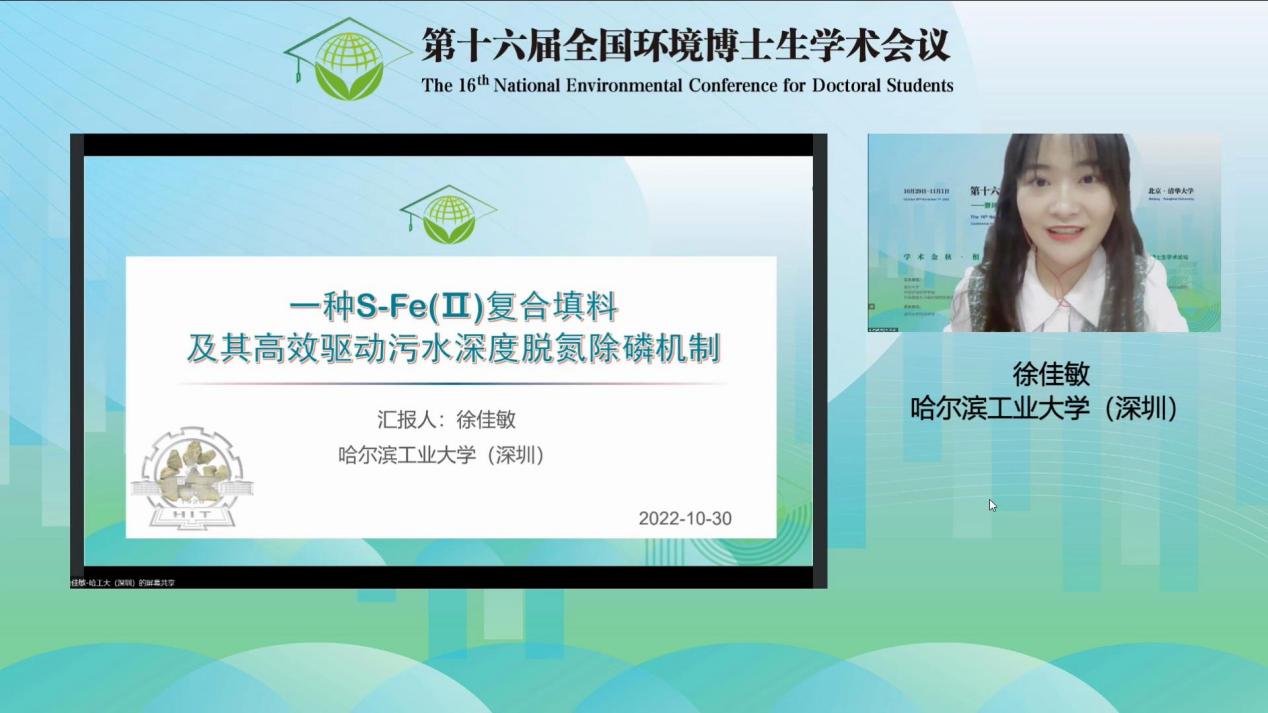
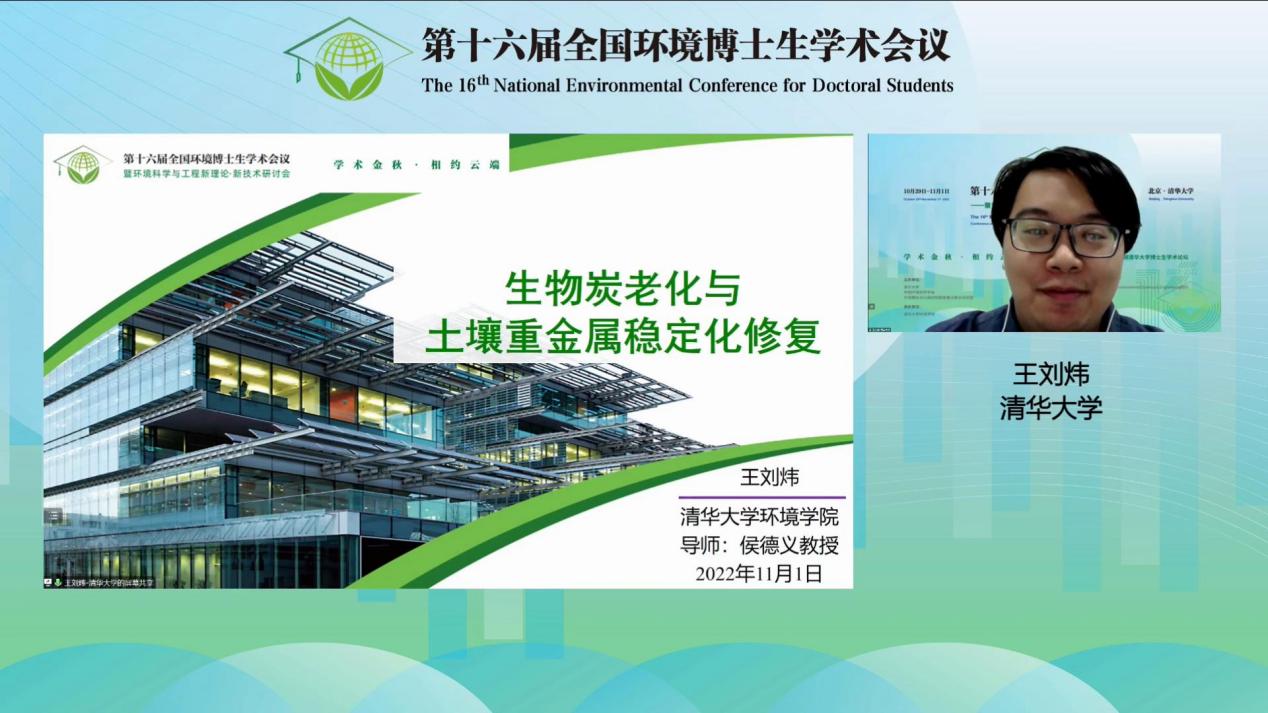
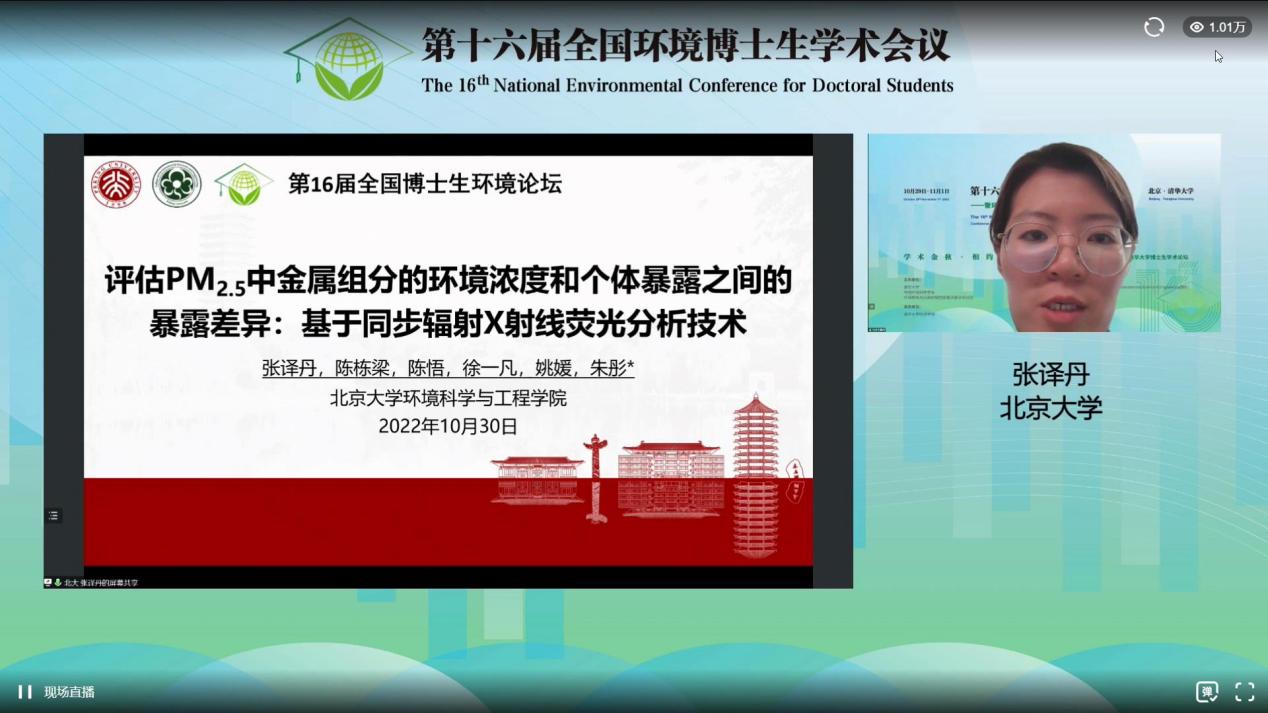
Xu jiamin, Wang Liuwei, and Zhang Yidan gave presentations in the closing ceremony
The National Environmental Conference for Doctoral Students (NECDS) is dedicated to the study of environmental sciences and is guided by the principle of "Innovation, Exchange, and Academic Excellence." It serves as a prominent international platform that brings together doctoral students engaged in the field of environmental research. NECDS offers a high-level and leading forum for academic exchanges, providing an opportunity for participants to share their innovative ideas, engage in fruitful discussions, and showcase their academic excellence in the field of environmental sciences.



